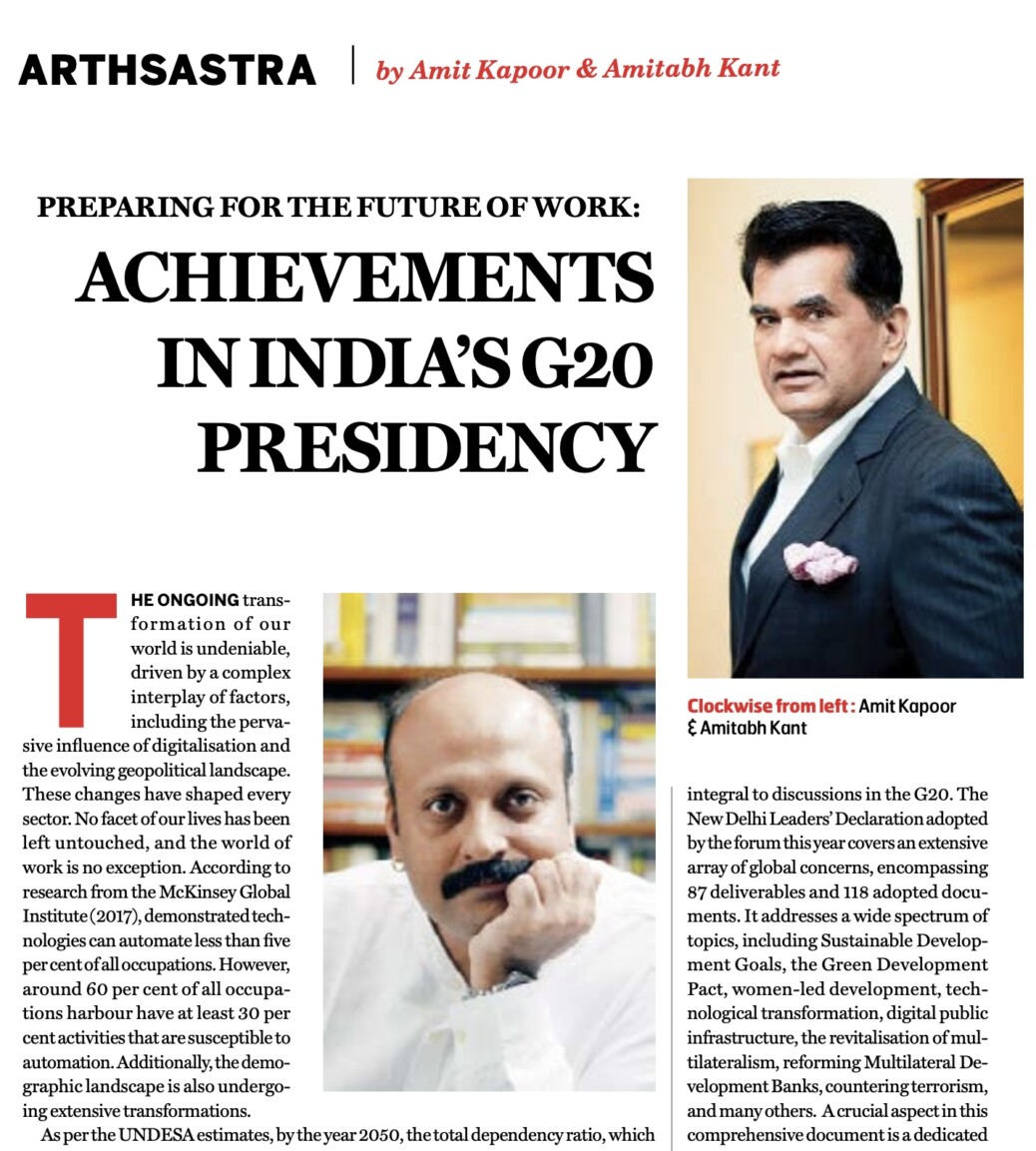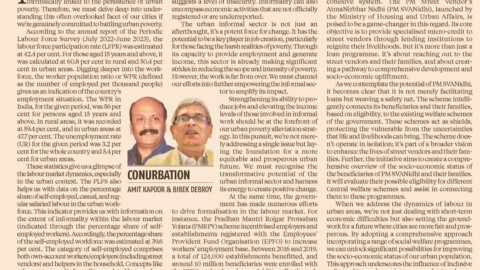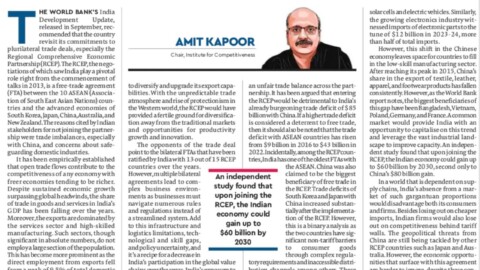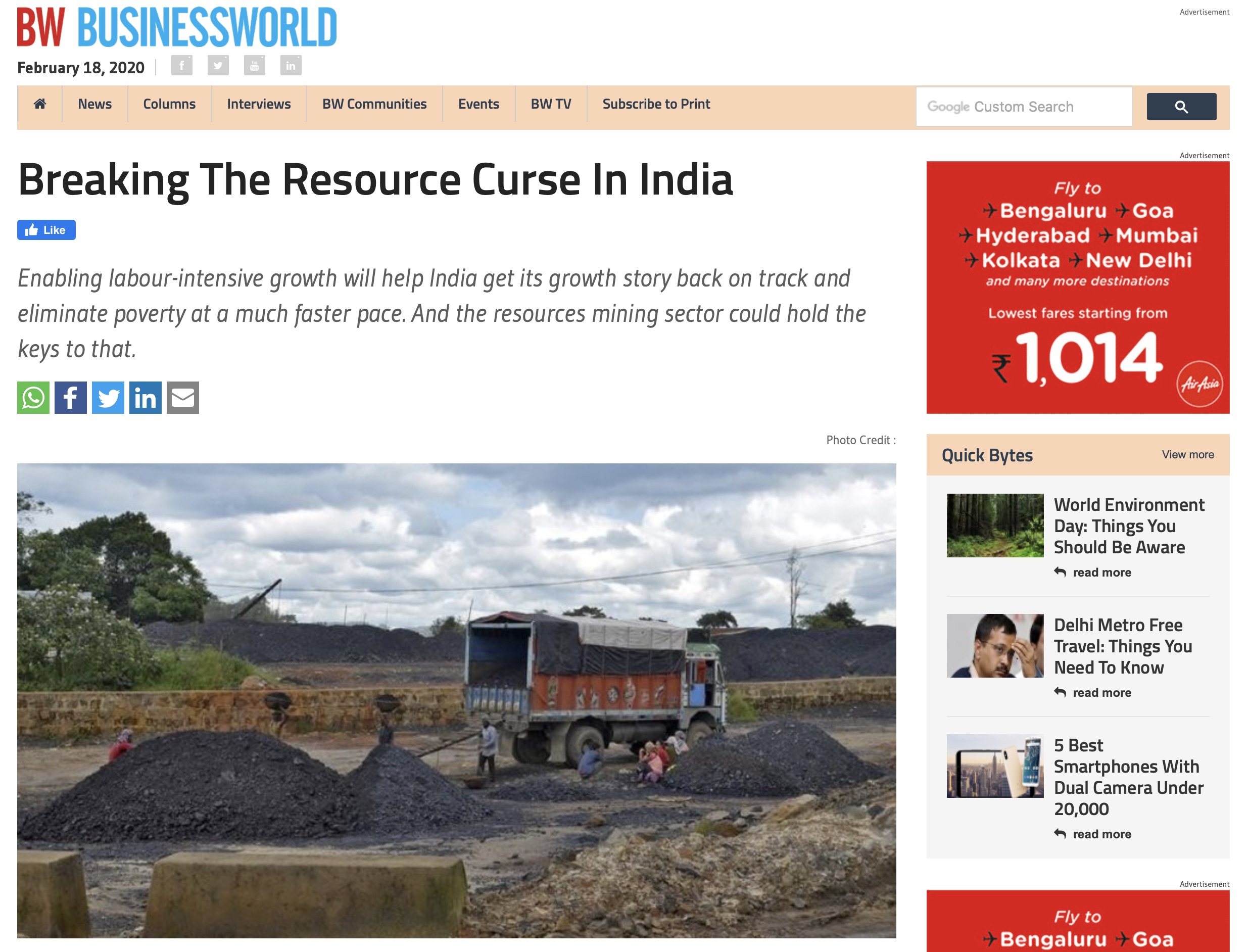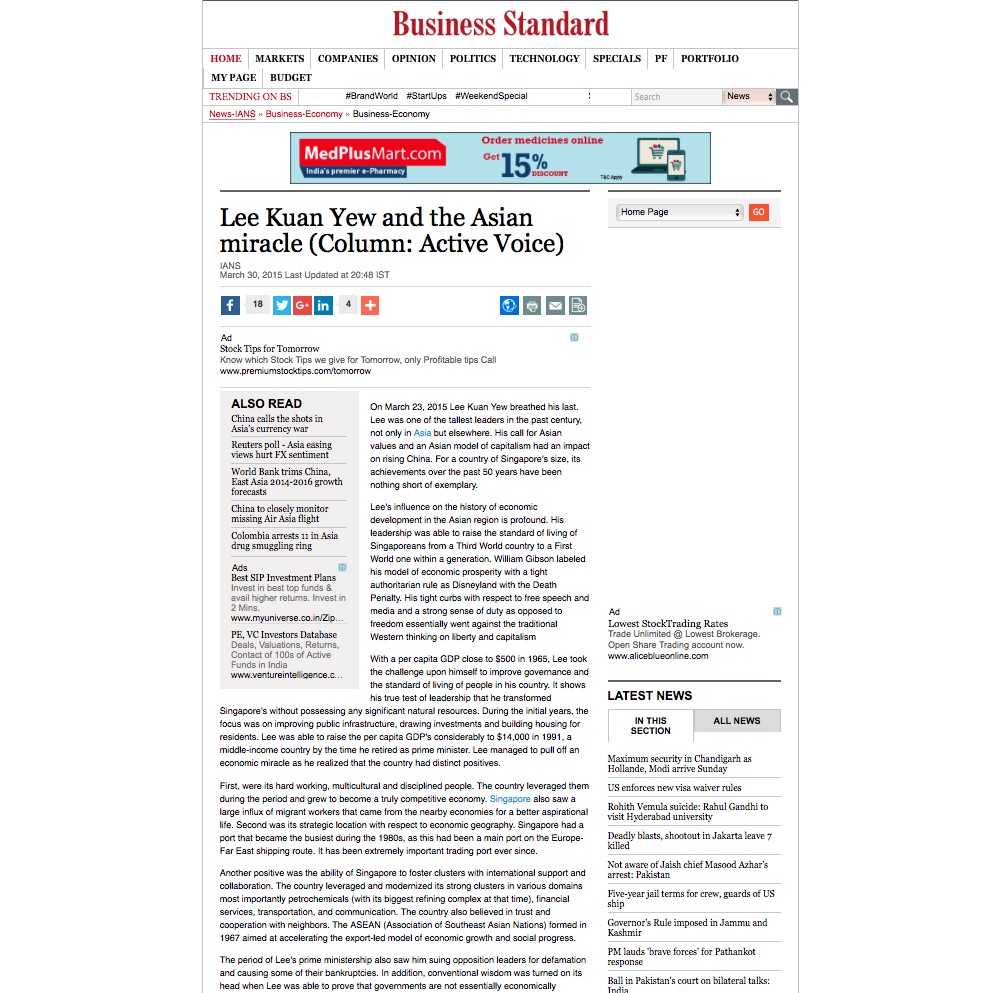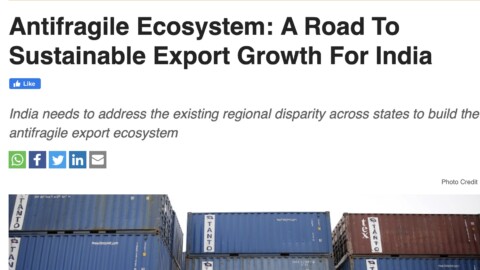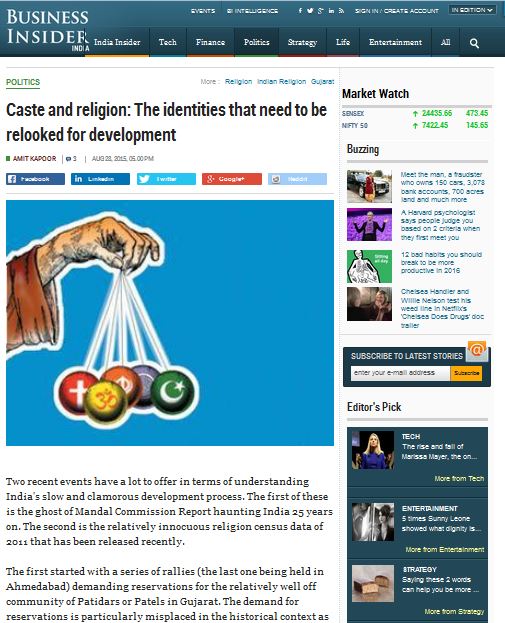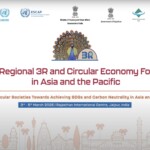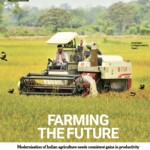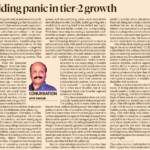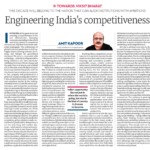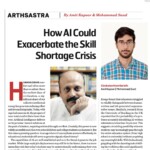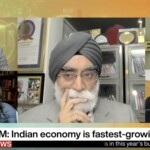By Amit Kapoor and Amitabh Kant
The ongoing transformation of our world is undeniable, driven by a complex interplay of factors, including the pervasive influence of digitalization and the evolving geopolitical landscape. These changes have shaped every sector. No facet of our lives has been left untouched, and the world of work is no exception. According to research from the McKinsey Global Institute (2017), demonstrated technologies can automate less than 5 percent of all occupations. However, around 60 percent of all occupations harbour have at least 30 percent activities that are susceptible to automation. Additionally, the demographic landscape is also undergoing extensive transformations. As per the UNDESA estimates, by the year 2050, the total dependency ratio, which measures the ratio of the population aged 0-14 and 65+ per 100 individuals aged 15-64, is set to experience a substantial increase in Europe of about 24.8 percentage points. In Northern America, this ratio is expected to rise by 14.4 percentage points, and in Asia, the increase is projected to be moderate, at 8.5 percentage points. Demographic changes along with technological transformations, climate change, and the changing socioeconomic patterns of the world are together shaping the terrain of work in profound ways. Policies governing the world of work must focus on adapting to these transformations. Change has always been the only constant. Keeping this in mind, we must craft futuristic policies with the element of adaptability at the core.
The G20 has been a platform where nations have come together to discuss topics and challenges of global concern. Labour and employment have long been subjects integral to discussions in the G20. The New Delhi Leaders’ Declaration adopted by the forum this year covers an extensive array of global concerns, encompassing 87 deliverables and 118 adopted documents. It addresses a wide spectrum of topics, including Sustainable Development Goals, the Green Development Pact, women-led development, technological transformation, digital public infrastructure, the revitalization of multilateralism, reforming Multilateral Development Banks, countering terrorism, and many others. A crucial aspect in this comprehensive document is a dedicated section which addresses preparing for the future of work. This is indicative of the prominent role of this subject within the G20 agenda. The presence of this section underscores the consensus among G20 countries on the importance of addressing the challenges and opportunities associated with the future of work. The G20 declaration reflects consensus among member nations reflecting in a range of commitments and statements that collectively aim to address skill gaps, promote decent work, and ensure inclusive social protection policies for all. The forum has taken the subject up on a priority basis.
Firstly, G20 this year recognised the significance of having well-integrated and adequately skilled workers that can be beneficial for both origin and destination countries. According to an ILO report, the number of individuals who migrated internationally for work increased from 164 million to 169 million between 2017 and 2019. Acknowledging that skilled labour is advantageous to both origin and destination countries, Leaders committed to ensuring regular and skills-based migration pathways. The forum also underscored the significance of mapping global skill gaps and developing G20 policy priorities to address skill gaps on a global level. While there exist various means to do so, theG20 this year highlighted the need to strengthen national statistical data and extending the coverage of the ILO and OECD Skills for Jobs Databases to G20 countries, as appropriate. Additionally, mutual recognition of skills and qualifications is key to facilitate the mobility professionals between countries. In this regard, G20’s commitment this year acknowledging the importance of developing an international reference classification of occupations by skill and qualification requirements, is important. In the area of skills, yet another crucial aspect that stands out is digital upskilling. In the face of technological advancements, the need for an agile or adept workforce is being felt now more than ever. A substantial investment is essential to facilitate lifelong learning, reskilling, and upskilling of workers in digital skills. Taking a step towards this investment, the G20 this year welcomed the comprehensive toolkit with adaptable frameworks for designing and introducing digital upskilling and reskilling programmes. This will go a long way in ensuring that skill development aligns with the modern workforce’s evolving needs.
Universal social security coverage is imperative for mitigating as well as averting poverty and vulnerability through the life cycle. According to ILO, more than 4 billion people still lack any social protection. The G20, recognizing the urgent need to alleviate this situation, made sustainable financing of universal social security coverage a key focus area in 2023. Leaders expressed their ambition to attain sustainably financed universal social protection coverage. They also underscored the importance of portability of social security benefits through bilateral and multilateral agreements. Considering that the world of work is witnessing a surge in new forms of employment including gig and platform workers, the forum’s recognition of adequate social protection and decent working conditions for gig and platform workers comes at a critical time.
In conclusion, the G20’s commitments within the sphere of labour and employment reflect a comprehensive approach to addressing skill gaps and promoting decent work. In a world where the nature of work is undergoing massive transformations, along with the future of work, we must ponder what the future workforce looks like. The answer to this question hinges on our actions today.
(Amit Kapoor is chair, Institute for Competitiveness and Lecturer, USATMC, Stanford University. Amitabh Kant is G20 Sherpa for India).
The article was published with Business World on January 10, 2024.
